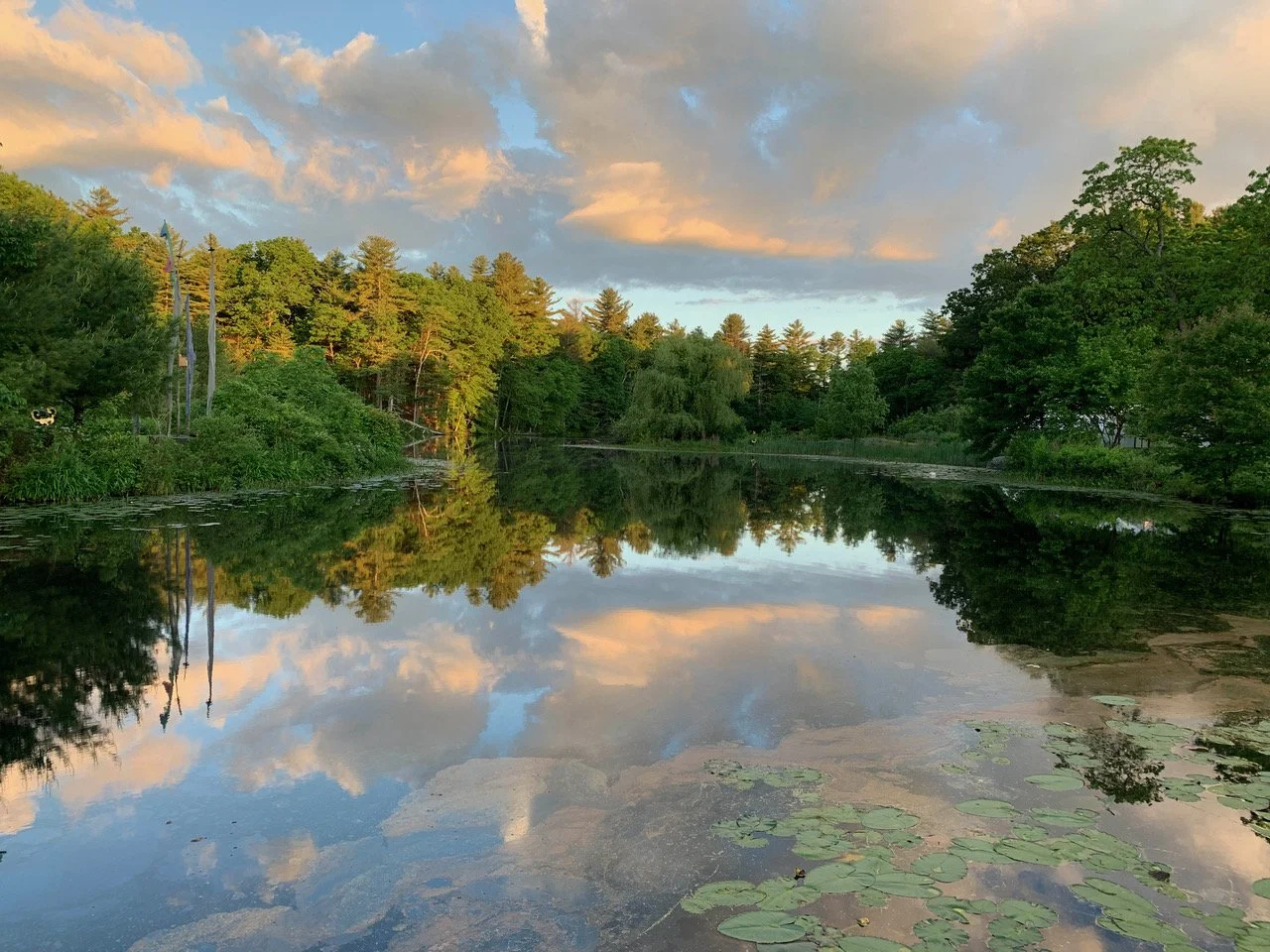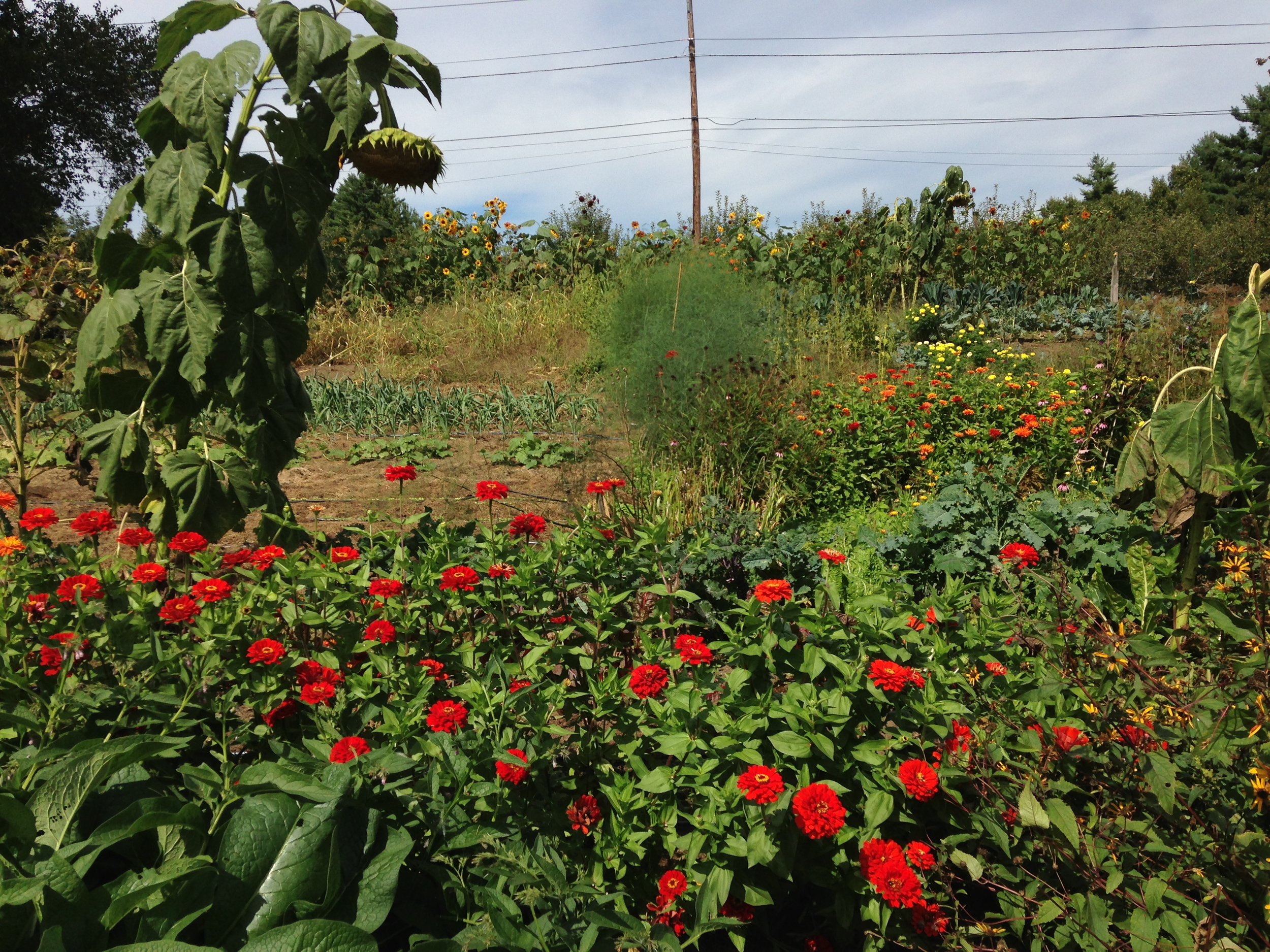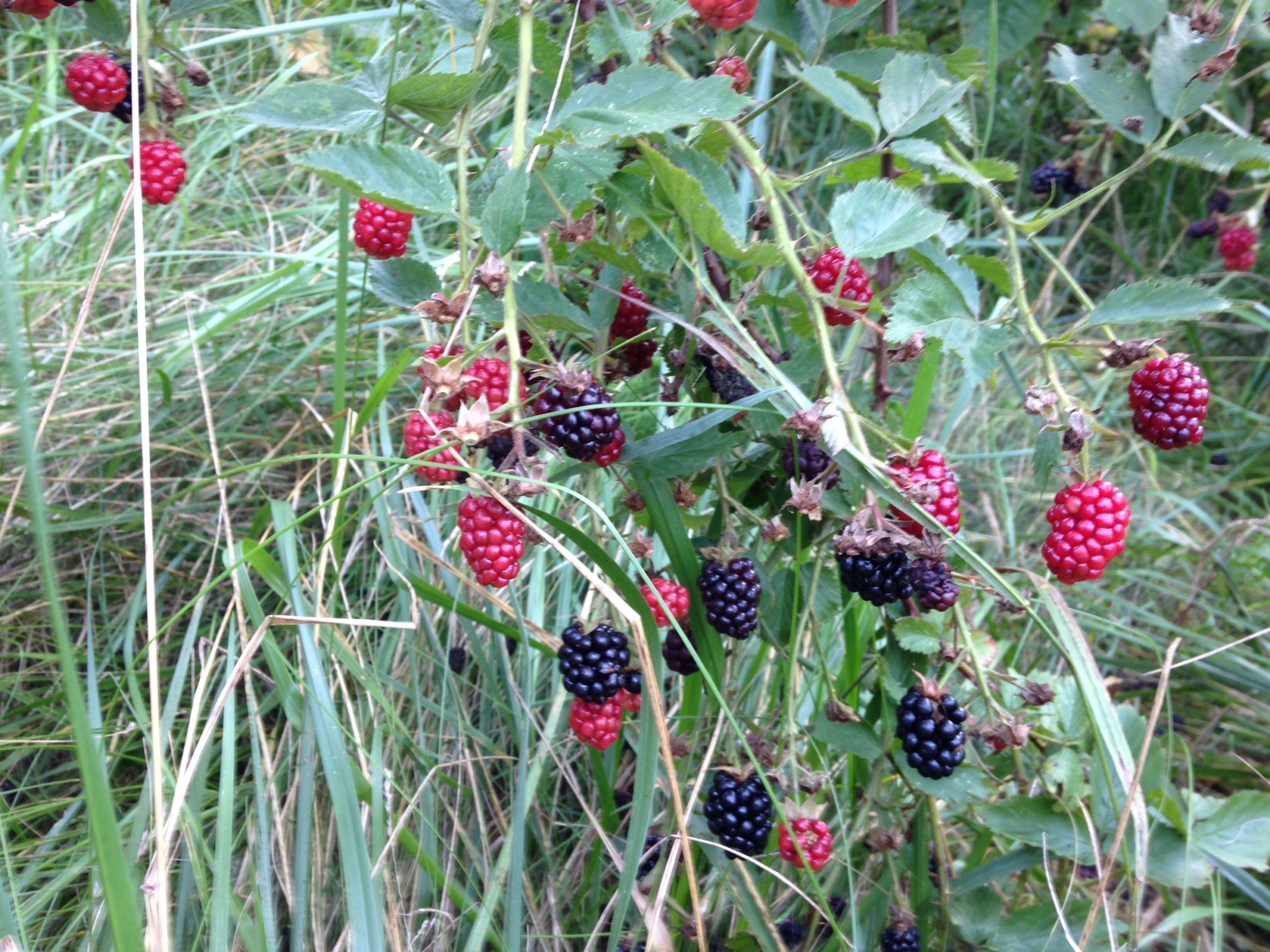I am drawn to the farm as a place for inspired language. Songs and stories are an integral part of thelandscape and the events that take place here, and Linda, a poet herself, frequently combines poetry with her photographs and sculpture.
My first collaboration with Linda and the land was a series of poems and images entitled, “River Crossings,” which was published in the first issue of the Wild Apples journal. I had just visited Linda’s studio to view the sculpture that would form the basis for our collaboration, but had no idea how the poetry would arise. As I pulled down the drive past the pond, I rolled down my car window and stopped to listen to the water pouring over the dam. The sounds and images of that moment became the first words of the poem:
Small boat twists on its tether, yellow
cord bound to precarious dock,
sound of water rising and falling.
Above the dam, the craft is still
white against dark and radiating
rings, signals intercepted
by insects and rain. Stone embraces
the pond, holds it back, while dry
reeds mingle with new green.
In the hull oars cross, tip back
toward penitent shore, the phoebe’s
careless tail. Blue overtakes
blue, all around the meadow
voices rise
in garlands of flight.
I was struck by how, in that momentary immersion in my surroundings, the lines rushed in without barriers.
In the prior year, illness had made it difficult for me to write, to be inspired, even to focus on the page long enough to coax words from their recesses. Since that day by the pond, however, I discovered a source once again in the outdoors. Now, I often seek a place on the farm to sit in contemplation—a rock by the pond, the meditation hut, a stump surrounded by beaver cuts at the edge of the wetlands.
Plein air, or outdoor, painting became popular in the early nineteenth century in Europe and North America with the introduction of the portable paint box. But the tools of the writer have always been portable, and certainly poets have been scribbling their first notes out of doors for centuries. I have been moved to language by nature for years, but now I want to plant my art into the landscape with even deeper roots. I am fascinated by the idea of plein air poetry. It mandates close observation and encourages appreciation of the landscape and its particulars—the plants, animals, water, rocks, and weather—in both writer and reader.
This summer we began our first plein air experiment at Old Frog Pond Farm, inviting some people who already self identify as plein air writers and others with a passion for this particular landscape. On Sunday, September 22 at 2 p.m. we will enjoy the fruits of their poetry harvest in a poetry walk at the farm. We hope that you will join us. Bring a notebook and pencil if you like, in case, you too are inspired along the way.
If you are moved to write plein air or to take as your subject the out of doors, feel free to submit your work for posting here on the farm’s website. I will look for a new poem each month, and occasionallycomment on some aspect of writing inspired by Old Frog Pond Farm.
Enjoy these late summer days of harvest, migration, and balm.
Susan




